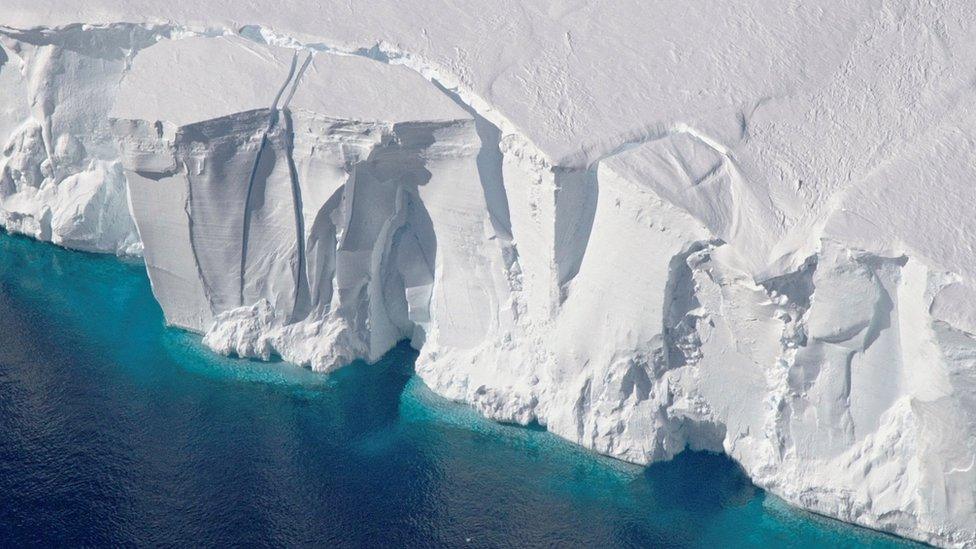Climate change: 2023 hottest year on record
- Published
- comments

Ice caps can melt because of increasing global temperatures
The year 2023 was the hottest on Earth since records began, say scientists.
The research was done by Copernicus Climate Change Service, which studies the impact of climate change on our planet, and how temperatures are changing.
This recent temperature boost is mainly linked to the El Ni帽o weather conditions, which have occurred on top of long-term human-caused warming, and scientists from the Met Office - which predicts our weather - are concerned that 2024 could be even hotter.
The Met Office also reported last week that the UK experienced its second warmest year on record in 2023.
What does this mean?
Put simply, the Earth is heating up, with the report saying that July 2023 was likely the hottest month in the last 120,000 years.
The climate has changed throughout the Earth's history but natural causes cannot explain the particularly rapid warming seen in the last century, according to the UN's climate body, the Intergovernmental Panel on Climate Change (IPCC).
Scientists say these record temperatures were driven by human-caused climate change and boosted by the natural El Ni帽o weather event.
El Ni帽o is a natural event where warmer surface waters in the East Pacific Ocean release additional heat into the atmosphere.
Air temperatures have been boosted unusually early on in this El Ni帽o phase - the full effects had not been expected until early 2024, after El Ni帽o had reached maximum strength.
However, though natural factors like El Ni帽o can raise or reduce temperatures for individual years, they say, the temperatures experienced in 2023 go far beyond simply natural causes.
Scientists and campaigners have been asking leaders all over the world to put plans in place to cut emissions "radically" and slow down the rate of global warming.
These hotter temperatures have an impact all around the world. Arctic ice levels are low, and there's been a rise in extreme weather like storms and droughts.
What's so important about keeping the Earth cool?
Extreme weather is likely to be more common because of climate change
In an historic event called the Paris Climate Agreement, countries all over the world agreed to stop climate change from heating Earth by more than 1.5C.
They were advised by scientists that a 1.5C was the highest rise the planet could cope with, without big consequences to people and wildlife.
When fossil fuels like coal, oil and gas are burned, they release carbon dioxide.
This is called a greenhouse gas - it goes into the atmosphere and traps the Sun's rays, heating up the planet.
"These are more than just statistics," says Prof Petteri Taalas, the Secretary General of the World Meteorological Organization between 2016 and 2023.
"Extreme weather is destroying lives and livelihoods on a daily basis."
What can be done about it?
Justin Rowlatt answers questions about the world's biggest climate meeting
Despite the record temperatures, climate scientists are clear that action by countries around the world to limit the consequences of climate change can still make a difference.
World leaders have been working with scientists to try to come up with a plan to tackle rising temperatures.
The news that 2023 is hottest on record comes after the COP28 climate summit in December where countries agreed for the first time on the need to tackle one of the main cause of rising temperatures - use of fossil fuels.
Countries can invest in renewable energy sources like wind power or solar power to create electricity without harming the planet
However, reaching agreement on a way forward can be very difficult, as countries have different wants and needs.
To reduce global warming, countries can cut down on their fossil fuel use and their carbon dioxide emissions.
To reduce the impact of climate change, governments can make buildings ready for storms and flooding, and educate people about looking after the environment.
